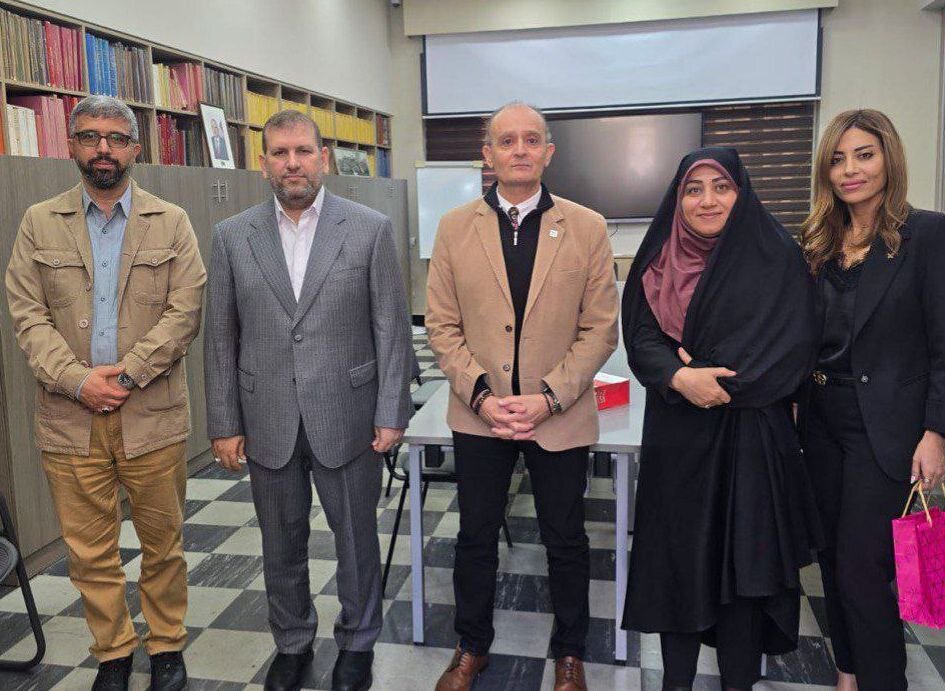IRCS, IFRC discuss ways to address regional challenges

TEHRAN – The Iranian Red Crescent Society (IRCS) and the International Federation of the Red Cross and the Red Crescent Societies (IFRC) have explored the potential to foster joint activities for dealing with regional challenges.
The secretary general of the IRCS, Meysam Afshar, and the IRCS director for international affairs, Razieh Alishvandi, in a meeting with Hossam Elsharkawi, the regional director at IFRC in Middle East and North Africa, highlighted the need for enhancing ties, the IRCS website reported.
During the meeting, which was held in Lebanon on Thursday, Elsharkawi lauded the IRCS humanitarian actions in recent years, particularly in regions impacted by crises and conflicts such as Gaza, Palestine, Syria, and Lebanon, saying that the IRCS efforts will never be forgotten.
Referring to the challenges ahead of the humanitarian organizations and national societies in carrying out their missions, the official said, “Here, we are facing problems that prevent us from carrying out our responsibilities properly. In Gaza and many other areas, the situation is very difficult.”
For his part, Afshar highlighted the violation of human rights by the Zionists over the past two years, and condemned the attacks on the Palestinian Red Crescent forces resulted in the killing of eight medics in Gaza.
Despite the high capacity of the IRCS in providing humanitarian consignments to be delivered to war-affected areas, restrictions and obstacles have prevented the entry of the aid, Afshar noted. He asked the IFRC to facilitate the dispatching of humanitarian aid to these areas.
Referring to the fragile situation in the region, Afshar stressed the need to strengthen collaborations among the IFRC and other national societies like the IRCS.
The official also announced the country’s readiness to hold humanitarian workshops in cooperation with the IFRC.
Alishvandi, for her part, referred to a joint project between the IRCS and the IFRC in partnership with Korea International Cooperation Agency (KOICA), saying that the infrastructure for the implementation of the three-year project with an allocated budget of $2.7 million, in three provinces of Iran, has been provided. She suggested the IFRC kick off the project in the second month of spring, beginning on April 21.
Highlighting the scientific and operational capacities of the IRCS, the official went on to propose turning the country into a regional hub for specialized relief and rescue training.
The IRCS is committed to developing regional and international collaborations in different fields, including relief and rescue training, and enhancement of humanitarian capacities, she added.
The proposals were well-received by Elsharkawi. He stressed the need to develop the regional hub structure precisely and suggested holding specialized meetings to review and finalize the plan.
In November 2024, the IFRC undersecretary general for national society development and operations coordination, Xavier Castellanos Mosquera, held a meeting with Afshar and Alishvandi.
Acknowledging the IRCS capacities, Castellanos Mosquera highlighted that the IRCS is well-known all over the world for its high capabilities.
The IFRC is interested in enhancing cooperation with the IRCS on conducting joint specialized training courses, and organizing different teams, like logistics teams, the IRCS website reported.
“The International Federation of Red Cross and Red Crescent Societies has different specialized groups and teams active in various sectors. Considering the capacity, knowledge, and valuable experiences of the Iranian Red Crescent Society, we are eager for the society to join these groups and teams to further support their peers as well as the federation,” the IFRC official went on to say.
Afshar, for his part, elaborated on logistic capacities and the capabilities of the IRCS in rescue and relief services, pharmaceutical and medical equipment productions, Helal textile products, medical and rehabilitation centers in the country, and 14 other countries.
MT/MG
Leave a Comment